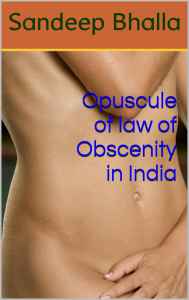Law of Joint Property, it’s Ownership and Partition:
Right to own property in India dates back to over 5000 years and if we go by ancient scriptures, at least 2000 years. If Indians call their country motherland, they call the land they own, as their mother; the provider of all needs, from nourishment to shelter. In other words the attachment to land is a matter of emotion and not purely of law.
It is for this reason, the British Government as the colonial rulers over India in 1893, enacted a unique law called Partition Act, 1893. This law along with other laws and the ancient principles of Hindu Law govern the ownership of property which is owned by by more than one person.
This book deals with all the nuances of law relating to ownership, enjoyment and partition of this property including the principles on which the property can be forced to be sold by public auction by court.
Click at any of the following links to read free sample of this book about Joint Property:

